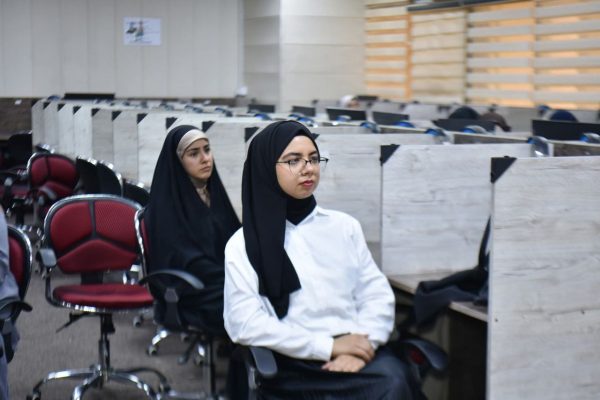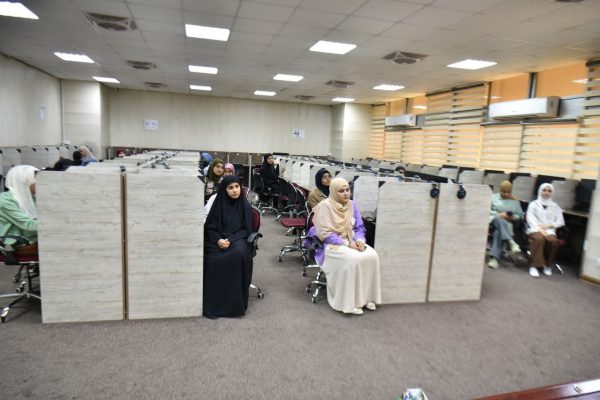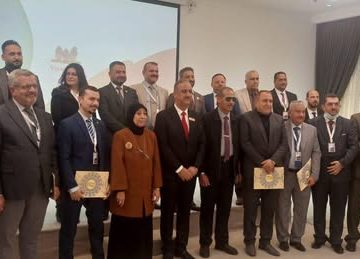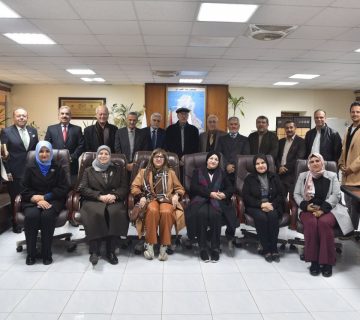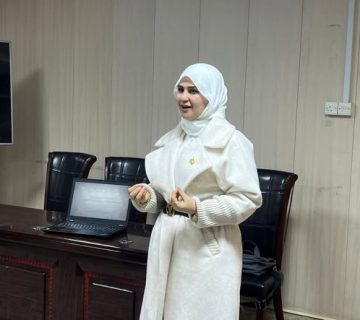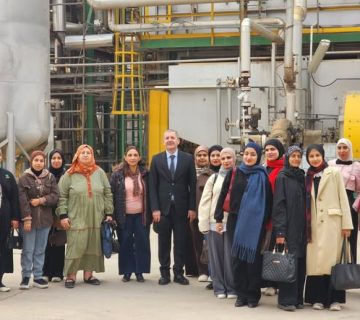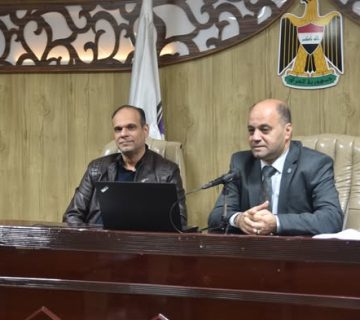Under the patronage of the Dean of the College of Science for Women, Professor Dr. Sameera Naji Khdim, the Department of Computer Science, in cooperation with the Continuing Education Unit, organized a training course entitled “Artificial Intelligence Tools.” The course was presented by the Assistant Dean for Scientific Affairs, Dr. Yusra Abdul Sahib, Dr. Wuldan Jameel Hadi, and Ms. Suad Ali Ubaid.The course aimed to shed light on the importance of artificial intelligence (AI) and its vital role amid the rapid technological and technical advancements witnessed globally. AI has become a fundamental pillar across various sectors and disciplines. The course included a detailed explanation of the most prominent AI tools currently available, and how to effectively utilize them in developing intelligent solutions that enhance performance and efficiency across multiple fields.Furthermore, the course addressed how these tools contribute to accelerating processes and analyzing big data, thereby opening broad horizons for innovation and technical excellence. On another front, the course also discussed the potential drawbacks and risks associated with AI. It highlighted the academic and societal challenges that may arise from the uncontrolled use of this technology, including concerns over job displacement due to rapid technological development and the risks of overreliance on intelligent systems without adequate human oversight.The presenters also explored the future trajectory of AI development, offering scientific predictions regarding its potential to evolve into systems capable of surpassing human intelligence and independently making complex decisions.Additionally, the course discussed the most prominent scientific and literary fields employing AI, illustrating how it has become integral in disciplines such as medicine, engineering, economics, and social sciences. The course also emphasized AI’s influence on literature and the arts through text generation and digital creativity, which opens new dimensions for human-machine interaction.The session further highlighted future job sectors expected to see increased demand for AI specialists. It introduced scientific institutions and universities that offer advanced departments and specializations in this domain, thus providing students and interested individuals with significant opportunities for education and professional training.In conclusion, the course emphasized the importance of keeping pace with continuous developments in AI and the ongoing training of scientific personnel to ensure optimal utilization of this technology while mitigating its risks. It also stressed the importance of integrating technical knowledge with ethical understanding to employ AI in socially beneficial, sustainable, and innovative ways.This course aligns with the ninth goal of the Sustainable Development Goals (SDGs): “Industry, Innovation, and Infrastructure,” which focuses on promoting innovation, building resilient infrastructure, and encouraging inclusive and sustainable industrialization.
